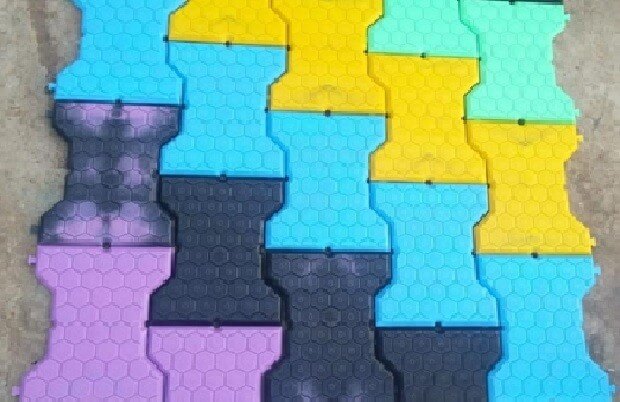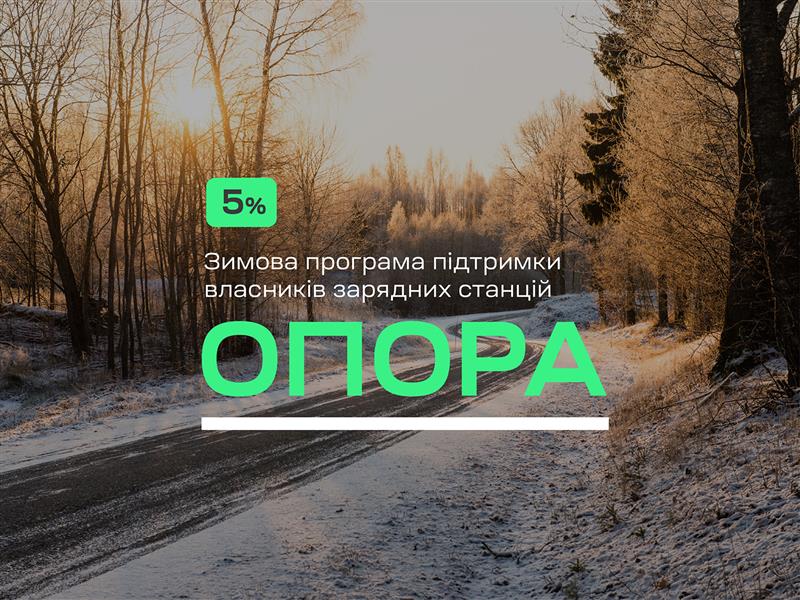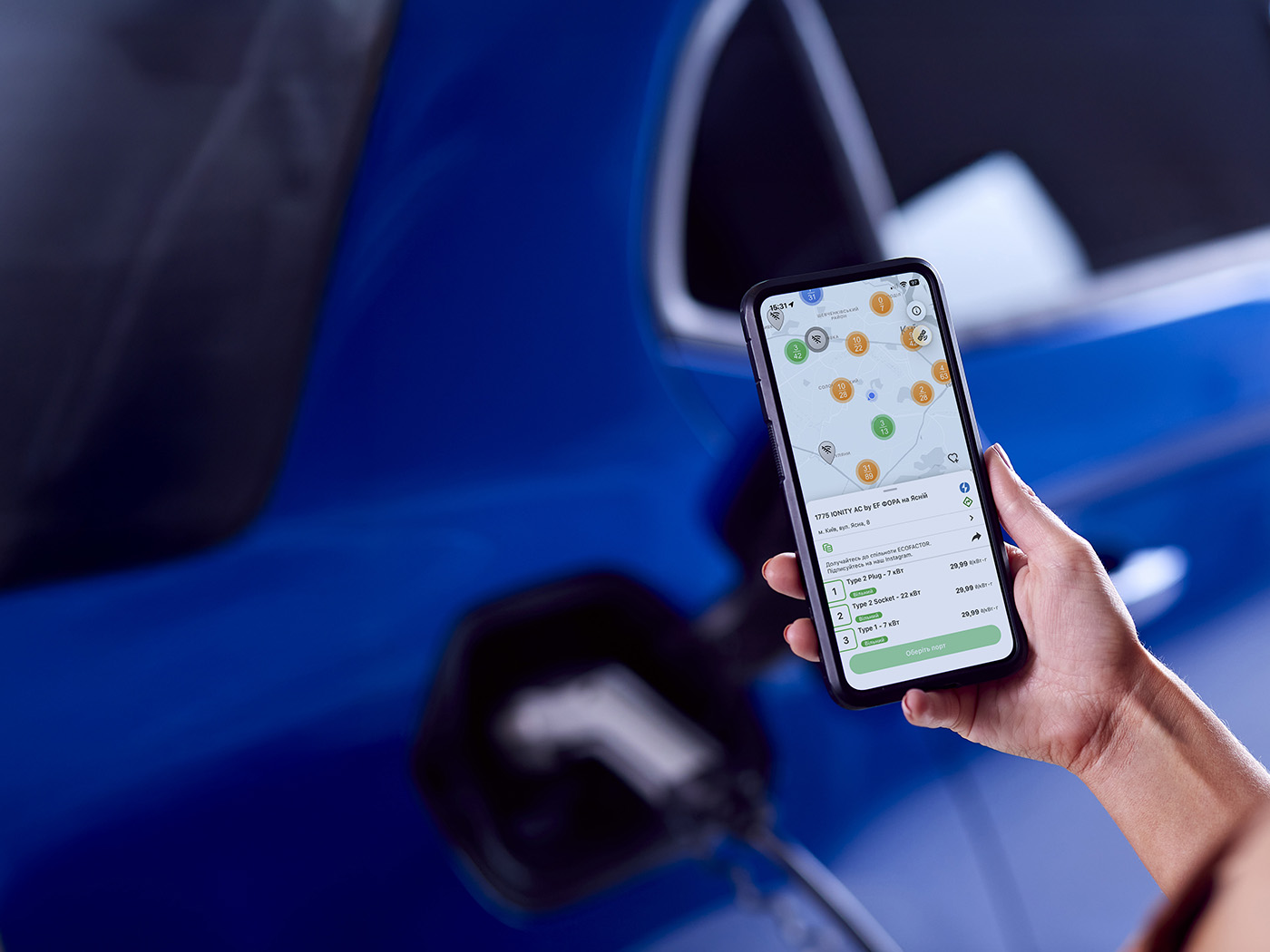
Plastic paving slabs from waste - how it is done in Ukraine
What kind of plastic can be recycled and what kind is not accepted anywhere? How to distinguish illiquid plastic from "normal" plastic, and what to do with it?" We looked into the types of plastics, and while collecting information, we found a project from Odesa called Precious plastic Ukraine. They make plastic paving slabs and art objects from illiquid waste. They have their own technology, [...]
Content:
What kind of plastic can be recycled and what kind is not accepted anywhere? How to distinguish illiquid plastic from "normal" plastic, and what to do with it?" We looked into the types of plastics, and while collecting information, we found a project from Odesa called Precious plastic Ukraine. They make plastic paving slabs and art objects from illiquid waste. They have their own technology, production and equipment.
What kind of plastic can be recycled
If you see these markings on the packaging or on the bottom of the bottle, you can safely take this waste to a collection point. If they are dirty, you should wash and dry them, then the plastic will be accepted without any questions.

1-PET
The most common type of plastic. It is used to make water, juice and oil bottles. Both colourless and coloured plastics are accepted. Recycled 1-PET is used to make bags, insulation for jackets, T-shirts and children's toys.
2-HDPE (PEHD)
Dense polyethylene. It is used to make soap packaging, milk and shampoo bottles, and lids. It is recyclable, so it is easily accepted for recycling and can be used to make pipes, garbage cans, membranes and roofing sheets.

4-LDPE
Polyethylene, which is used to make the bags we use in supermarkets and markets. It is also used to make cling film, garbage bags, linoleum and tarpaulin. It's easy to take for recycling. Waste is used to make buckets, toys, shoes, and flower pots.
5-PP
Polypropylene used to make buckets, packaging, yoghurt cups, lens packaging, thermal underwear, carpets, disposable syringes, inhalers and car parts. It can be recycled.
Which plastics are considered illiquid
If you see these markings, try not to buy the product in such packaging.

3-PVC
Non-food plastics used to make floor coverings, windows, ceilings, plumbing pipes, artificial leather, computer cable braiding, household chemical packaging, pill blisters, cosmetic bottles, toys.
It is considered to be hazardous to health because it contains the heavy metal cadmium, which is why food is not usually packaged in it. This plastic is not accepted for recycling, as it pollutes the air with toxic substances when burned.

6-PS
Polystyrene. It is used to make polystyrene foam, chicken egg cartons, meat liners, yoghurt cups, CDs, and disposable tableware. It is accepted for recycling, but not everywhere. It is considered harmful to health because it releases toxins when heated.

7-O or PC (Other)
Mixtures of different plastics or other polymers that have not been assigned a separate number. They are used to make packaging for, for example, cheese, coffee, pet food, and baby food bottles. They are not accepted for recycling anywhere.

d2w
Oxo-degradable plastic, which contains an additive that is responsible for the breakdown of plastic into micro-particles. It cannot be recycled.
Plastic tiles made from illiquid materials - the Ukrainian project Precious plastic Ukraine
In Odesa, there is a project created by the inventor Yevgeny Khlebnikov called Precious plastic Ukraine. Engineers make paving slabs, sculptures, paintings and various household items from illiquid plastic. For example, key rings, balance boards, lamps, smartphone stands, children's swings and even furniture.
The recycling process looks like this:
- The washed, dried and colour-sorted plastic is sent to a shredder (crusher);
- is crushed until small pieces are obtained;
- The plastic crumbs are mixed with sand;
- is poured into the extruder, where the plastic melts and comes out as a hot strip;
- The mass is divided into the required parts and placed under a press, which replicates it into finished tiles with or without a pattern.
Sometimes a dye is added if a specific colour is required. But if the plastic is already coloured, the finished products will be very bright anyway.
According to the author of the project, Yevhen Khlebnikovplastic tiles are stronger than conventional concrete paving stones, they are flexible, do not bend, are not afraid of aggressive environmental conditions and can withstand the weight of cars. It is not for nothing that the inventor and his team received a grant in 2019 from the EU and UNDP project "Improving Environmental Monitoring of the Black Sea: Selected Activities". The equipment has now been assembled and a recycling scheme has been developed.
Where to hand over plastic that is considered illiquid
The Precious plastic Ukraine project team accepts illiquid plastic from the public at the laboratory's address: 103 Nebesna Sotnya Ave. in Odesa (ZONT plant). You must call in advance by phone: 067 910 6601 or write to direct.
Plastic can also be sent by Nova Poshta with a courier delivery service at the sender's expense. All waste must be clean and dry.






